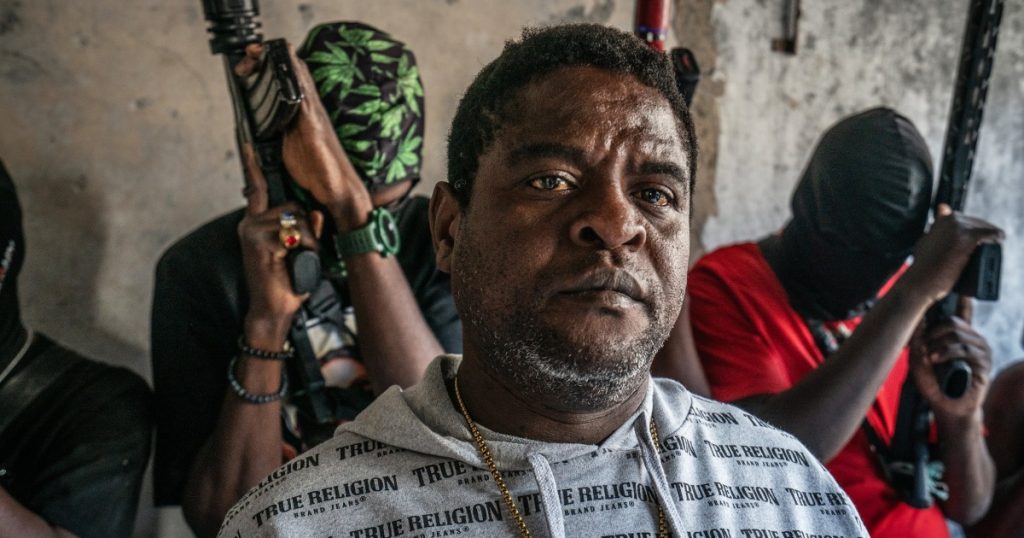The gang leader known as “Barbecue” has become the face of Haiti’s descent into lawlessness and violence, stating that he would consider a ceasefire only if his consortium of armed gangs was included in international talks on the country’s future. He warned that a foreign peacekeeping force would be treated as enemy fighters and meet armed resistance, and that a recent decrease in violence was only a temporary pause. As much as 80% of the capital, Port-au-Prince, is now under the control of gangs following months of unrest in the country.
The United Nations reported that an estimated 1,500 people have been killed in gang violence in Haiti so far this year, with 4,500 deaths recorded last year. Efforts are being made to evacuate U.S. nationals from the country, with at least 450 already evacuated and ongoing efforts to airlift the remaining Americans. The pan-Caribbean CARICOM group of nations and the United States have pledged to help form a transitional government leading to a democratic nation, but currently, the gangs continue to rule the streets.
Chérizier leads the G9 collective of gangs and also leads Viv Ansanm, a revolutionary gang alliance. He expressed a lack of faith in the current transitional government process but left open the possibility of participating in a peace deal if the international community presents a detailed plan where all parties can engage in dialogue without imposed decisions. Chérizier believes in using weapons to liberate the country from corrupt politicians and oligarchs, insisting that they do not believe in killing and massacring people but instead seek dialogue.
Haiti has a long history of corrupt politicians and mishandling of international aid money, dating back to the devastating earthquake in 2010. Chérizier has been accused of brutal violence, including a massacre in 2018 where at least 71 civilians were killed and 400 homes were torches. The U.S. Treasury has labeled him a human rights abuser as a result of these actions. Sky News encountered a heavily guarded Chérizier, traveling along a deserted freeway to reach him where snipers were watching and the atmosphere was tense.
Chérizier’s group has claimed a relatively calm and stable area for themselves, where food and water distribution is taking place in an orderly manner. However, he warned that any foreign peacekeeping force sent in would be met with armed resistance. Kenya had pledged to send 1,000 troops to coordinate a U.N.-backed alliance, but this plan is currently on hold. Chérizier predicts a future Haiti without kidnappings, rape, and murder but believes that corrupt politicians and oligarchs must leave for this vision to come to fruition.
Overall, Chérizier sees himself as a revolutionary leader fighting against corruption and injustice in Haiti. He has expressed a willingness to engage in peace talks if given the opportunity to participate in decision-making processes without outside imposition. The situation in Haiti remains precarious, with armed gangs controlling much of the capital and ongoing violence and unrest. Efforts are being made to resolve the crisis and establish a transitional government leading to democracy, but the path forward remains uncertain.


